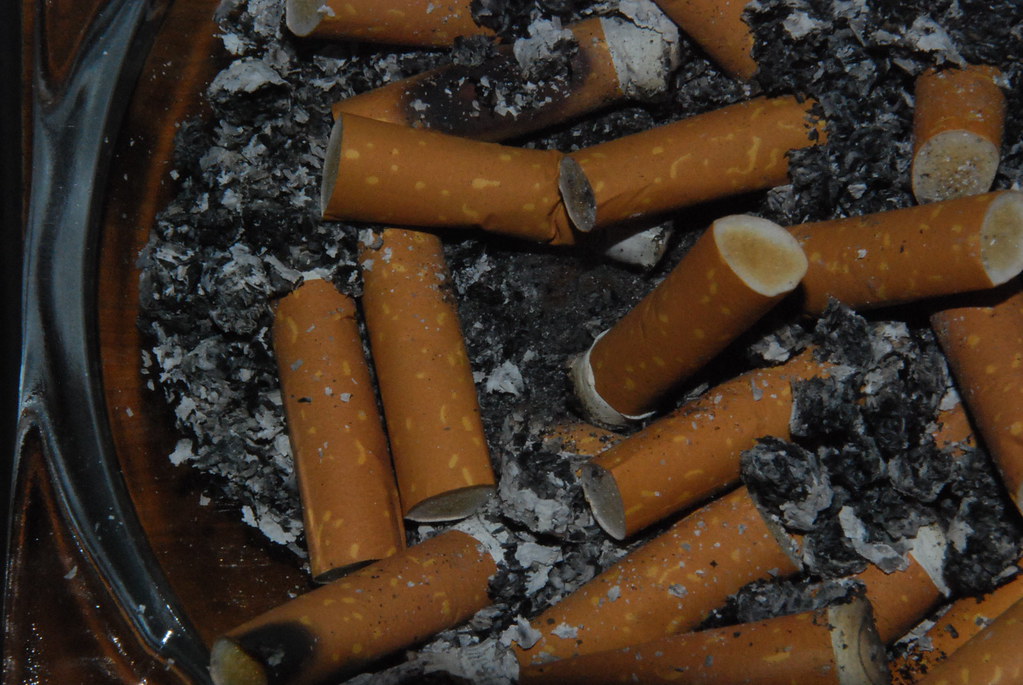"I live with 426 euros per month"
- Batis State is becoming more and more common. No one can make sure that we will not be the next.

You were young. Did you have any problems?
I was getting sick with my father, among other things because he forced us to speak in Basque. He even gave us his belt. Therefore, both to him and to the Basque Country, I was shocked by many concerns. All of them spoke to me in Basque and I answered all of them in Spanish. When I was 21 years old, I was already living in Pamplona, and I realized that as a father, Euskera was not to blame, I enrolled in language school, and in a year and a half I got the title. Since then I have taught Euskera at AEK and IKA for ten years. I participated in the creation of the Basque Country of Ansoin and Barañáin. It can be said that I have gone from hating the Basque to loving very much.
A hard story...
My late father's family came from Uharte Arakil. Her mother became pregnant as a young woman and had to leave the village. She started working as a maid with a family that had business in Gipuzkoa and that's why her father was created in Tolosa. But grandma couldn't see progress and left her son in Zizurkil's orphanage. On the same day, a family brought her and another child to an Amasa farmhouse. He was totally illiterate and had incredible complexes, because he had a very bad time in military service, in the workshop… He also had a very bad relationship with our mother. For a while he was dedicated to drinking. When I was little, I had not received love and I didn't know. We are four brothers and our mother was the one who grew us up and educated us. I have a very good relationship with my mother.
He has been unemployed for three years, but in how many companies have he worked?
35 companies. First under construction. When I was 17 years old I left home and came to Pamplona, I arrived on a Friday and started working on Monday. In addition, as a plumber, I taught Euskera classes, in the Euskaltegi Mihiluze as a porter, in the Vergel residence, in summer I worked as a firefighter, in the mail service, as a dealer, as a bus driver, I set up a cafeteria… Most of the time I managed quite well. Last time I worked as a bus driver. It was a hard job: get up at 4:30 in the morning and park the bus at 18:30. I don't drive all the time, but I do drive through the phone. I proposed to the company half-day celebration, but I was told that that was not possible. I was not willing to work any more. There was also a girl in the company who wanted a full day, so I asked for the bill and left. He earned good, but he preferred to have less money and more time. I've always been a saltsero.
EUR 426 per month. It's not even the interprofessional minimum wage.
I have received the unemployment benefit until it runs out and now I have asked and started to collect the benefit for over 52 years, EUR 426. I live with that. The law has now been amended and the age limit for requesting this aid has been raised to 55 years. I am glad to have asked for this in time. I could have asked for the basic income, but the conditions are very tough and also now there is no money.
How do you live with that money?
I've been used to living like this. I have the housing paid. I've paid an old car. My expenses are gas, electricity, water, community expenses, insurance, telephone and food. I've been around for a little over a year, and the truth is that I haven't experienced this issue badly, because that's what gives me the opportunity to enjoy the rest of my life. I'm very tight to end the month and that's mandatory, whether I like it or not, but on the other hand I can do a lot of things: I'm a mountaineer, I'm talking on the Mortgage Affected Platform and it gives me the opportunity to work on human relationships. I'm living in a very nice time.
You don't have children. Quieter than others on that side?
It was always clear to me that I should not marry or have children. And I don't regret it. Maybe I'm very selfish, but if we're going to live four days, I don't want to live on the children and serve them. I don't know where this idea came from. Maybe I remember my mother in that situation. Now I'm with a couple but each at home, he with his son and me at home.
Do you look at prices a lot?
What a cure! I'm a mountaineer and I take great care of food. Mainly vegetables, legumes and pasta and, occasionally, fish and meat, but very little. I've known him for years.
Little meat for the price?
Because of the price and also because I once saw how the feed was made. I was transporting wheat and corn. One day, in a feed factory, there was a stench. I started in the socket and I had the opportunity to see where it came from: they had the bones of animals stacked up and then mix them with the corn. I found it terrible and disgusting. I prefer fish, but it's also expensive and the sea is getting dirty and dirty. I like to cook. I enjoy it and with this money I do what I can.
Do we value material things too much in our society?
That passion is disease. I think we have to rethink it. If we continue along that path, we have no future. We have to think about where we came from and about the polio that we are doing in the third world. Are we happier in that economic growth? I certainly do not. That passion for possession doesn't take you anywhere. Now my movie is nicer. I used to have money, but I didn't have time to live many of the positive aspects of life.
Is it hard to learn how to live with less?
Yes, that is why new approaches need to be made for the future. But my question is: Are people willing to change? I think today's young people have a very black future. I also knew the time of Franco and the scarcity dominated our house. We were six with a single salary. That gives you experience to learn how to unwrap yourself. I've had a lot of trades, I've always been precarious and I've always been impatient. In this interior of consumption, I've moved little. Not much more than I've done on my travels. Thanks to that. But will young people be able to do that metamorphosis? Aren't you going to fall into depression? They have become accustomed to living differently since they were born and have it really hard. Going from good to bad is very difficult.
Does it look worse in a few months? They say that they may also take away the help you receive.
Yeah, I'm afraid. And in view of the prospects, if you take away what I charge, you may have to go to work outside. There will always be a choice to do it, to go to Mexico or somewhere else in Latin America and earn a living there or here.
Now you're in the unemployment. If you have a job offer, should you continue to receive this assistance?
I am not obliged to accept what they offer me. In these three years, however, they have offered nothing to me from the employment office. There are websites that make you a hairstyle of jobs, looking for jobs that interest you. However, nothing comes out.
The Barañin Mortgage Affected Platform has recently been set up.
Three months ago. We contacted the platforms of Pamplona and Burlada and set it in motion. We also have contact with groups from Antsoain, Tudela, Berriozar and Sakana. We hold several meetings, but above all we engage on the Internet. It is no bad thing that there are few affected here, for now. It is estimated that only 10% seek help. Why not anymore? The offer is nice: help, not strong social pressure. I think most of them are from the outside and think they have more to lose than to win. However, they are becoming more and more affected.
Do you know a lot of people who are going wrong?
Some families are very bad. Mistreatment, money no, little children… You see everything. Now, for example, here's a girl from Barañain, mother of three children. The husband mistreated her and ended up leaving the house. The girl works in Eroski. The Basque bank charges EUR 1,200 per month, of which it has to pay Caja Laboral EUR 1,000 for the hypothesis of the apartment. The situation forced him to go to talk to the boxes and gave him “a shortage”, that is, the loan capital is left aside for two years and he only has to pay interest, but that is 600 euros! Critical situation. He came to us for help. We are going to go now to tell the Labour Party that the formula of the shortage in this case is not enough and we will ask them to bear the burden in return for the debt. The woman is absolutely afraid. The social rental would have been the most appropriate in your case, but do not dare to ask Kutxa because he does not want to put his job at risk.
There is another Ecuadorian family with three children and the smallest with a disability degree of 85%. The husband is unemployed, the mother charges something, but for a short time… Terrible. On the part of the platform, and if those involved so wish, we are in favour of bringing the situation to the extreme. We tend to need to say goodbye. What we tell the banks in exchange for debt is that they have no weight or anything, that they throw the family into the streets if they dare. It is an extreme, very harsh and violent situation for all, but unfortunately the most effective. And that is that now many banks and boxes accept the house fairly easily in exchange for a debt. We want to take the next step: the homes that these entities have are at a suitable social rental price for the families that have less access.
Banks find it hard to see people protesting in front of us, isn't it?
Today, all banks are accepting the house in exchange for a debt. Maybe because they're seeing new possibilities for selling pesos. I suspect they have found a new way of business: selling houses to Chinese, Russians, outsiders… I don’t know. Those affected leave the bank crying, as they show a very harsh attitude. We help them talk to the banks when they come to visit us. Then comes the change. The first thing they ask is who we are. They change behavior when they learn that we're on the platform. When it was Caja Navarra and at BBVA at first they mistreated us, insulted us and threw us into the street. Now, because of social pressure, they have completely changed their attitude. La Caixa, for example, has another way of acting. They have a person responsible for debt matters, who invites us into their office telling us that they are prepared to settle the matter.
But the problem doesn’t end there…
They produce a report and send it to another department above. This opens the negotiation process for two or three months. However, the problem does not end when you get rid of the debt: without a house, where to turn? What we're trying to do is get proper social rents. There have already been some cases and we want to get there.
Batis Martiarena 1959ko urriaren 15ean Donostian sortu eta 17 urtera arte Hernanin bizi izan zen. Orduan etxetik alde egin eta Iruñera joan zen bizitzera. Geroztik hogeita hamabost enpresatan baino gehiagotan aritu izan da lanean. Egun 52 urtetik goitiko langabeentzako diru-laguntza jasotzen du: 426 euro hilabetean, eta horrekin bizi da. Diru gutxi baina denbora asko du benetan gustuko dituen gauzak egiteko. Barañainen eratu duten Hipotekek Kaltetuen Plataformako talde berrian ari da lanean buru-belarri, besteak beste.
“Ogia egiteko makina daukat eta horrekin bizkotxo moduko bat egiten dut Muesli eta zereal pila batekin, izugarrizko energia ematen duena. Eta eskerrak horri, bestela mendian, adibidez, ez dakit nola ibiliko nintzen!”.
“Bitxia da, baina alarma soziala pizten denean, zorra gelditu egiten da. Ez dakigu etorkizunean zer gertatuko den, baina momentuz geldirik uzten dute. Kezkagarria da, jendeak ez dakielako zer gertatzen den bankuek ez dutelako ezer esaten. Damoclesen ezpata beti dute buru gainean. Kaleratzea ekiditen dugu momentuz, baina ezin da jakin bihar edo etzi ez ote diren etorriko”.
Mendia
“Hasieran, adin honekin eta lanik gabe neure burua ikusi nuenean oso krisi handia izan nuen. Eskerrak oso harreman onak nituela jendearekin eta lasaitzea lortu nuen. Orain nire egoerari ez diot buelta gehiegi ematen. Soinketa lekura astean hirutan eta asteburuetan mendira joaten naiz, penak kentzeko-edo, ez dakit. Bi mendi talderekin ibiltzen naiz: igandeetan Iruñea inguruan lasai-lasai mugitzen gara, giza harremanak lantzen, eta bestearekin, larunbatetan mendi handietara joaten gara, elurretara, soka eta kranpoiekin, kanalak irekitzen… Asmoa da udaberrian Mont Blanc-era joatea. Diruz estu-estu, baina moldatzen naiz. Nahiago dut ez pentsatu eta momentua bizi. Bizitzea da garrantzitsuena eta gero gerokoak. Gainera, ikaragarri azkar aldatzen ari dira gauzak egunetik egunera”.
We learned this week that the Court of Getxo has closed the case of 4-year-old children from the Europa School. This leads us to ask: are the judicial, police, etc. authorities prepared to respond to the children’s requests? Are our children really protected when they are... [+]











_2.jpg)
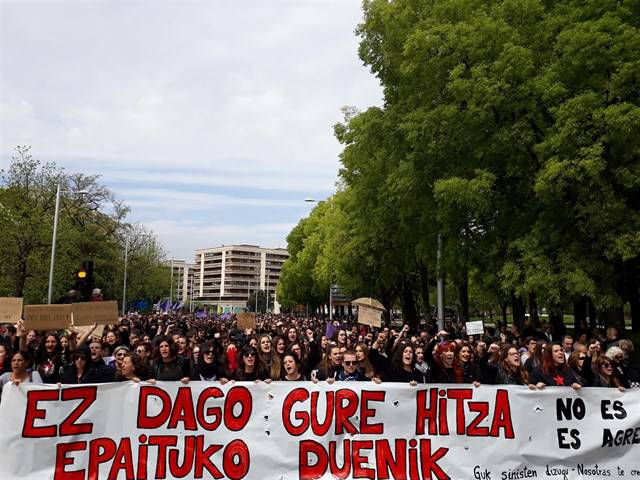
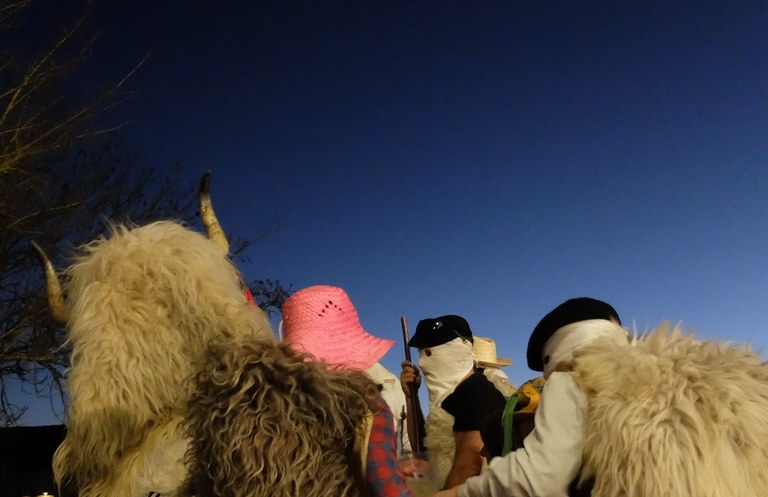
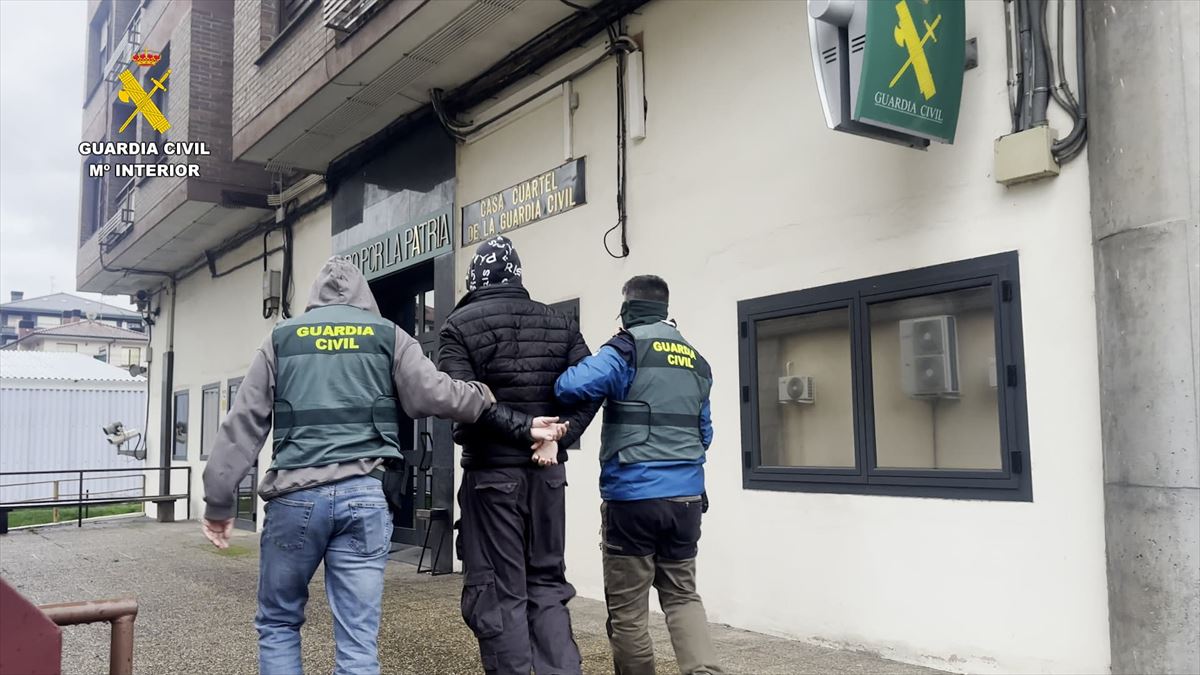


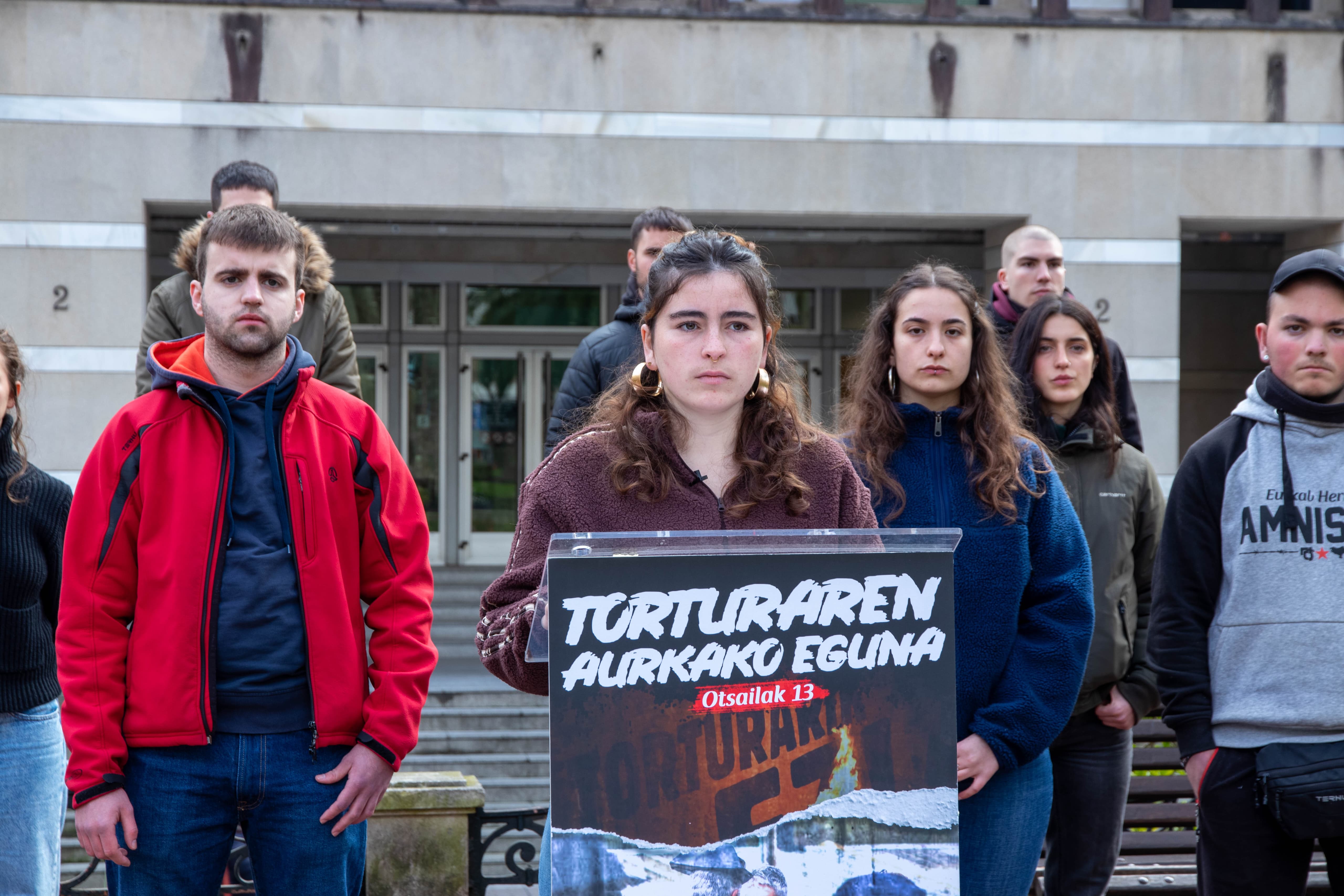
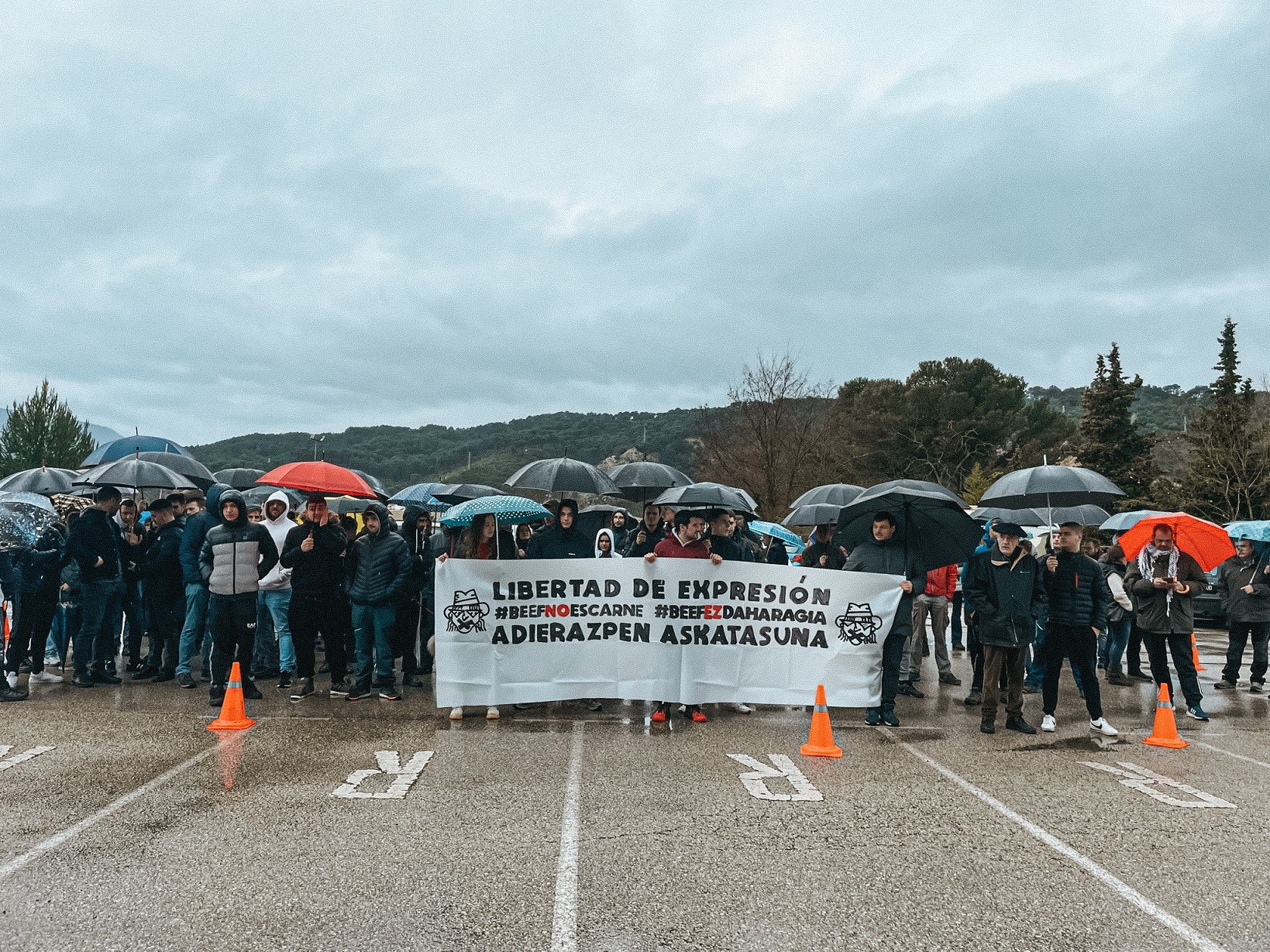
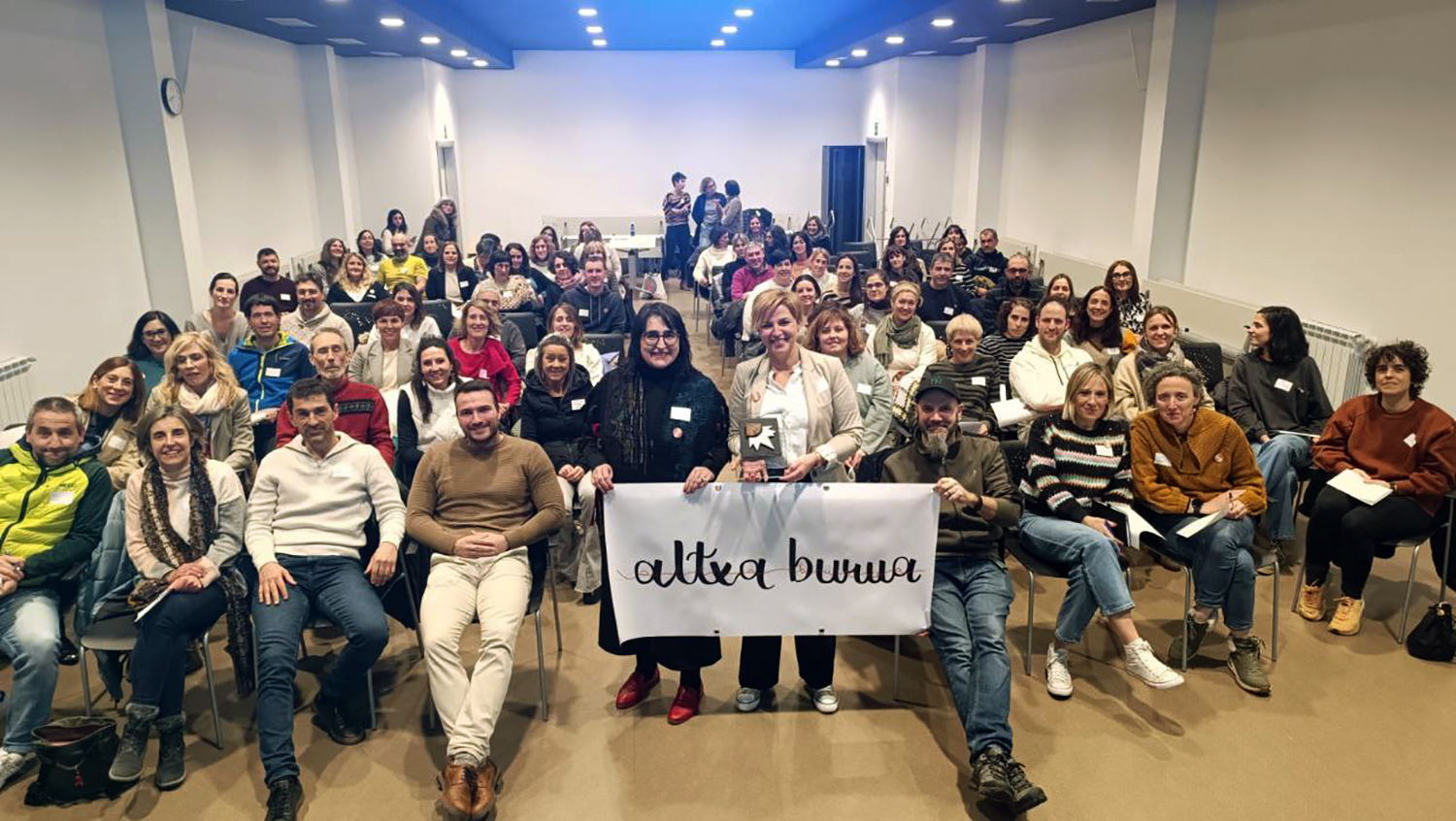
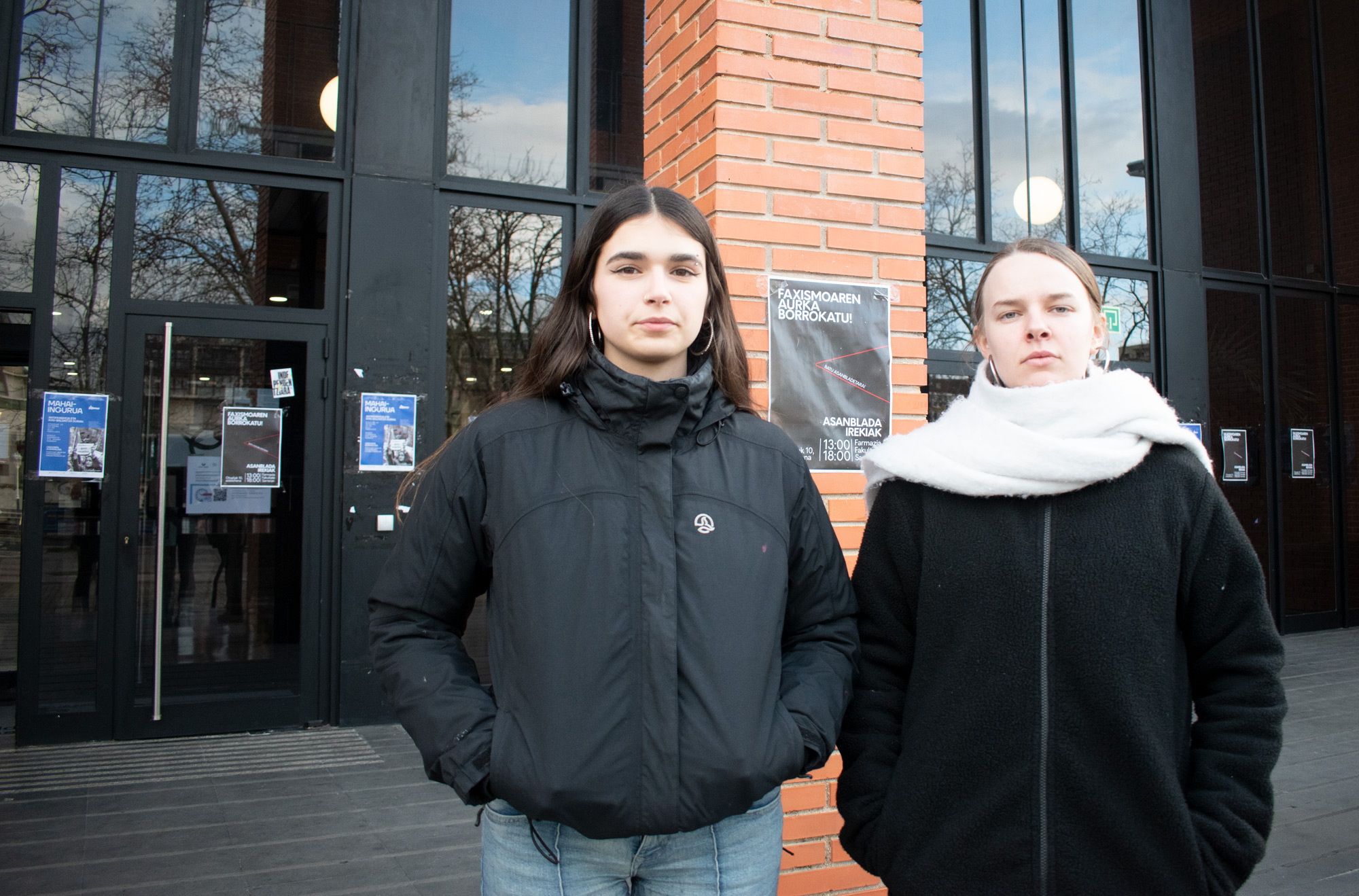
_2.jpg)
